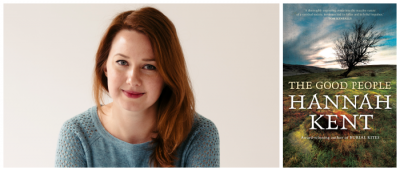Author Spotlight: Hannah Kent
11th May, 2017
We had a chance to put some questions to shortlisted author Hannah Kent, on the other side of the world. Here she explains her singular approach to research, and how she came to write The Good People.
Q: What do you think about being shortlisted for the Walter Scott Prize for Historical Fiction? Do you see yourself as a historical novelist?
A: I’m absolutely delighted to be shortlisted for the Walter Scott Prize. It is a great honour, and to be listed amongst writers of such high calibre makes it doubly so.
I don’t see myself as a historical novelist, mainly because the historical setting of my novels occurred through happenstance rather than design. Both of my books are based on true events, but it was curiosity about the people involved – their humanity, their lived emotional experience – rather than the historical context, which compelled me to write.
Q: How did the people and times you write about in this novel first lodge in your imagination?
A: The ‘lodging’ for The Good People, took place about six years ago when I was researching my first novel, Burial Rites. One day, tired of translating endless Icelandic sources, I procrastinated by reading old British newspapers and stumbled across an 1826 article detailing an unusual trial. An Irish woman called Anne Roche had been accused of a serious crime, but her defence was so extraordinary that I immediately copied it down into my notebook.
I think most of my writing comes about through a kind of haunting. A character arrives who refuses to dissipate. I’m trying to fall asleep, or buy vegetables, or shower, and there they are: nebulous, insistent. Anne Roche was one such haunting. I wrote The Good People to try and answer my own questions about what kind of woman she was, what she believed, and why she did what she did – I suppose I wanted to give form to the ghost.
Q: What role does research have in your writing? When does the fiction take over from the facts?
A: Research plays a large role in my writing for two reasons. Firstly, I feel that extensive research is a gesture of respect towards the place, the culture, and the people I’m writing about. The line between appropriation and emendation can be fine one, and I feel that research helps me err on the right side. Not every writer feels this way. I do.
Secondly, it’s only when I feel saturated with familiarity of a place and people that I am able to begin writing. I spend up to two years trying to attain this familiarity, and then, when my imagination is able to operate on an intuitive level with reasonable fidelity to the past, I leave the books and write.

